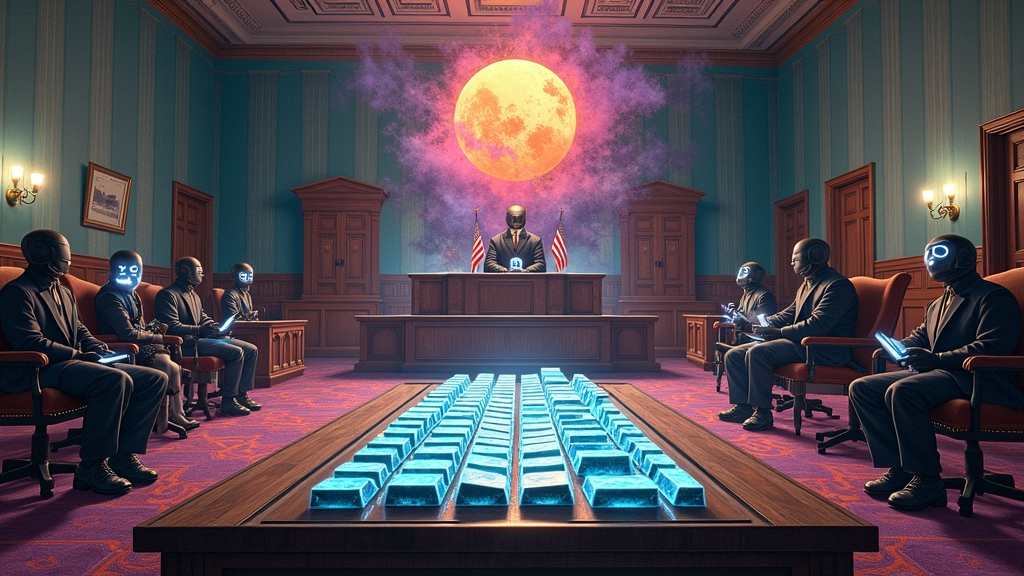Meta Proudly Announces Plan to Moderate Absolutely Nothing: “Let the Internet Get Weird Again”
Silicon Valley overlord Mark Zuckerberg has once again decided to lean into his company’s founding motto, “Move Fast and Break Things,” by adding a slight yet clarifying amendment—“…and Then Set the Rest on Fire.” In a bold Tuesday announcement that sent mild ripples through dystopian think tanks everywhere, Meta revealed new, gut-punching changes to its already anemic content moderation policies. Translation: buckle up, because Facebook, Instagram, and WhatsApp are about to get as unhinged as your uncle’s Thanksgiving rants, but with fewer safeguards.
“Frankly, moderation is for cowards,” a Meta spokesperson likely didn’t say but probably thought. Under the new rules, the company will begin phasing out fact-checkers entirely. Didn’t believe the Earth was flat last week? Don’t worry—you’ll be seeing a *ton* of new “compelling” arguments from Larry in Idaho soon. Among other highlights, Meta’s adjustments now make it perfectly acceptable to call LGBTQ+ users “mentally ill”—an initiative Meta describes as “fostering diverse discourse, or just giving bigots a budget-friendly playground.”
For those concerned about how the platform will handle the turmoil that follows, Meta wants to reassure you with their master plan: “We trust the users to figure it out. Problematic misinformation has such a vintage charm these days,” said an imaginary source at Meta’s headquarters while sipping a $20 chai latte made from moon tears.
The most eyebrow-raising feature of the announcement is their pledge to “recommend more political content based on personalized signals,” which is Silicon Valley speak for “cranking the algorithm dial toward rage-inducing echo chambers.” This exciting leap forward means that if you momentarily clicked on an article about frog rights, prepare for your feed to be absolutely flooded with amphibian conspiracy theories. “It’s all in the name of connection and personal growth,” said Fake Zuckerberg in my head. “And by connection, I mean connecting ad revenue straight to my wallet while Karen from Nebraska argues with teenagers, unchecked.”
Critics, mostly everyone with a brain, have warned that removing what few flimsy safeguards existed on Meta’s platforms could open the floodgates for misinformation, harassment, and a delightful new game called “Who Wants to Radicalize a Neighbor?” Media analyst Sarah Snarky commented, “It’s a bold choice in what I can only describe as a catastrophically stupid timeline. But hey, chaos is an aesthetic now, right?”
Some users are already loving the changes. “Finally, I can post memes blaming the moon landing on lizards without anyone fact-checking me!” said Doug, a 47-year-old amateur flat-Earther and professional sandwich eater. “I just feel liberated, you know?”
On the flip side, fact-checkers—the scruffy, overworked vigilantes of truth—are eyeing their unemployment with mixed feelings. “Honestly, this saves me time,” said one anonymous fact-checker while packing a disheveled cubicle. “Do you know how exhausting it is to disprove 147 different ways someone misspelled ‘vaccines cause Wi-Fi’ every day?”
Meta insists that this decision will foster “authentic interaction.” The rest of us insist it will foster *authentic chaos.* Still, you’ve got to admire the ballsiness of it all. Zuckerberg, the Willy Wonka of dumpster fires, continues to double down on the vision we never asked for. After all, when your profits are rolling in, who cares if the rest of us are screaming into the void?
The bottom line? Welcome to Meta’s 2025: where the truth is optional, the discourse is deranged, and Zuckerberg is still counting the cash while amateur internet sociologists try to find new ways to explain why your aunt just joined her tenth doomsday cult. Good luck out there, humanity.




